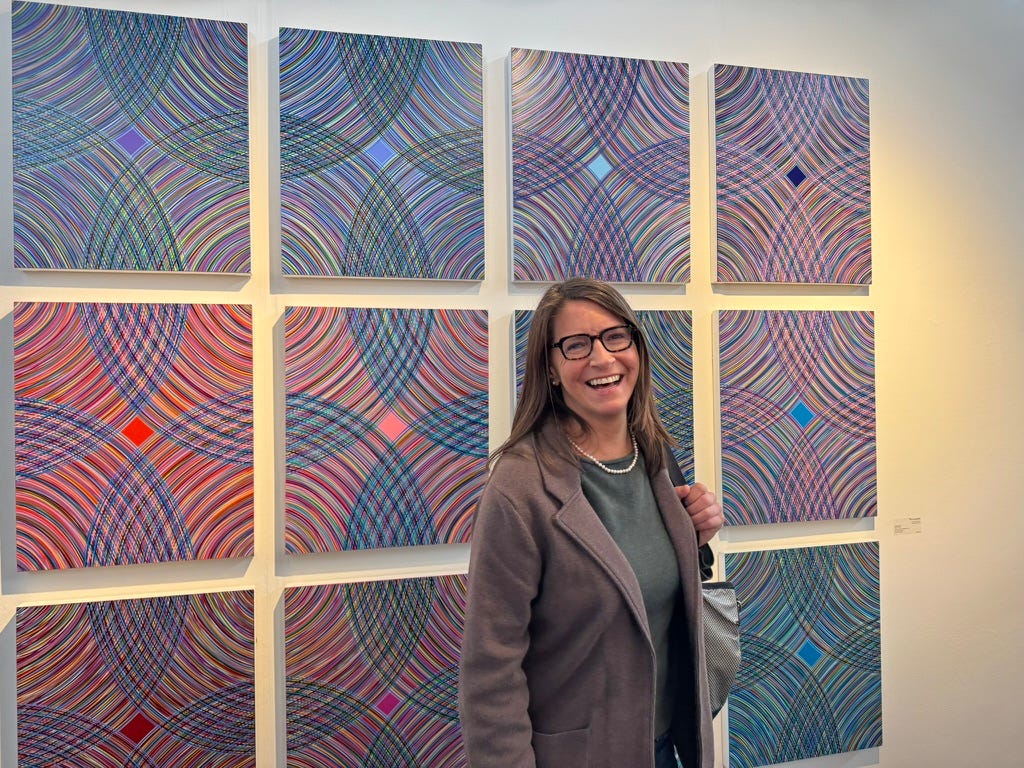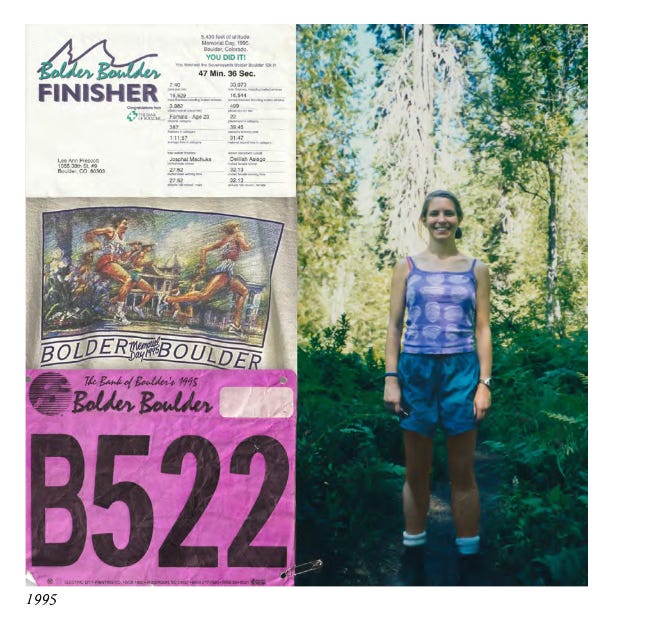Hello friends,
Can a place change our attitude? Having lived in dozens of homes by the time I landed in Boulder in December 1994, I can absolutely say that it does. Boulder’s location at the foothills of the Rocky Mountains restored my spirit after a downer of a year.
24. Professional Runner
In the spring of 1995, I participated in my first Bolder Boulder, the city’s premier 10K road race, which attracted 33,000 runners and offered a prize of $25,000 to each male and female winner. The stadium finish line felt like a spectacle of validation for my love of running, surrounded by world-class runners, many of whom trained in the foothills of Boulder just as I did. College invitationals had just a few hundred runners; to come in 499th out of 16,544 female runners made me feel less alone after months of solo training.
By the summer, I was living in a shared house in North Boulder, a half a block from Mount Sanitas, a city-owned open space preserve with miles of trails. It was a tiny slice of heaven in my 23-year-old mind, my body armed with Saucony running shoes, a Trek mountain bike, and a stack of thrifted novels.
My roommates were relatively sane. Holly ran a clothing store and kept the house together with her boyfriend Sean and his best friend Bob. Sean and Bob were potheads disguised as fraternity types, and Bob was growing pot under lights in the hallway closet. As a pot abstainer, I didn’t hang out with them socially, but Holly got me hooked on making iced coffees with her mini stovetop espresso maker, which powered my afternoon runs and long bike rides. I took trips to the mountains with a new group of friends, and temped in various offices, including the home of a company that made fiber cleansing products (the bathroom was filled with air fresheners), and Warren Miller Entertainment, where ski bums edited and planned films as they eagerly waited for summer to pass.
In the fall, Ben Rosenfeld, a fellow graduate of Middlebury, moved to Boulder to teach undergraduate writing at the University of Colorado. We rented a tiny two-bedroom apartment at the back of a house on 17th and Canyon, just a block from Boulder’s famous Pearl Street. It was rumored that Timothy Leary had once lived in the house.
My temping adventures brought me to Access Graphics, a computer reseller. My job was called “runner.” It entailed taking faxes (which were usually orders) off the fax machine and delivering them to the desks of individual salespeople. While I didn’t get a $25,000 prize like the winner of Bolder Boulder, I met Mark Bornstein, a tall, blue-eyed salesman who slipped me his card while walking around the sales floor pretending to talk into his unattached headset. Our meeting perhaps changed the shape of the universe, for it was an explosion of particles that would persist for years to come. Everyone at Access could see the lightning bolts of electricity in the air between us.
The power of your happy place
That first year in Boulder, I still had no idea what I wanted to do for a career, but I chased my happiness by running in the hills, making new friends, and reading. Opportunities that would shape my future appeared as if by magic—by making myself happy, I invited more opportunities for happiness.
I only wish I had believed in these universal laws back then. I was still brainwashed by the mentality that you could only play hard if you worked hard, and I’ve never been interested in working that hard.
“Work hard, play hard” is a modern attempt to justify the mentality of generations of serfdom translated into generations of industrialized labor. It empowers the corporate structure above all else by granting permission to play only after working hard to serve the capitalist agenda.
What if a truer maxim is work happy, play happy? The Boulder lifestyle supported that mission. And my current one can too.

May you work happy and play happy this week!
Love,
Lee Ann






